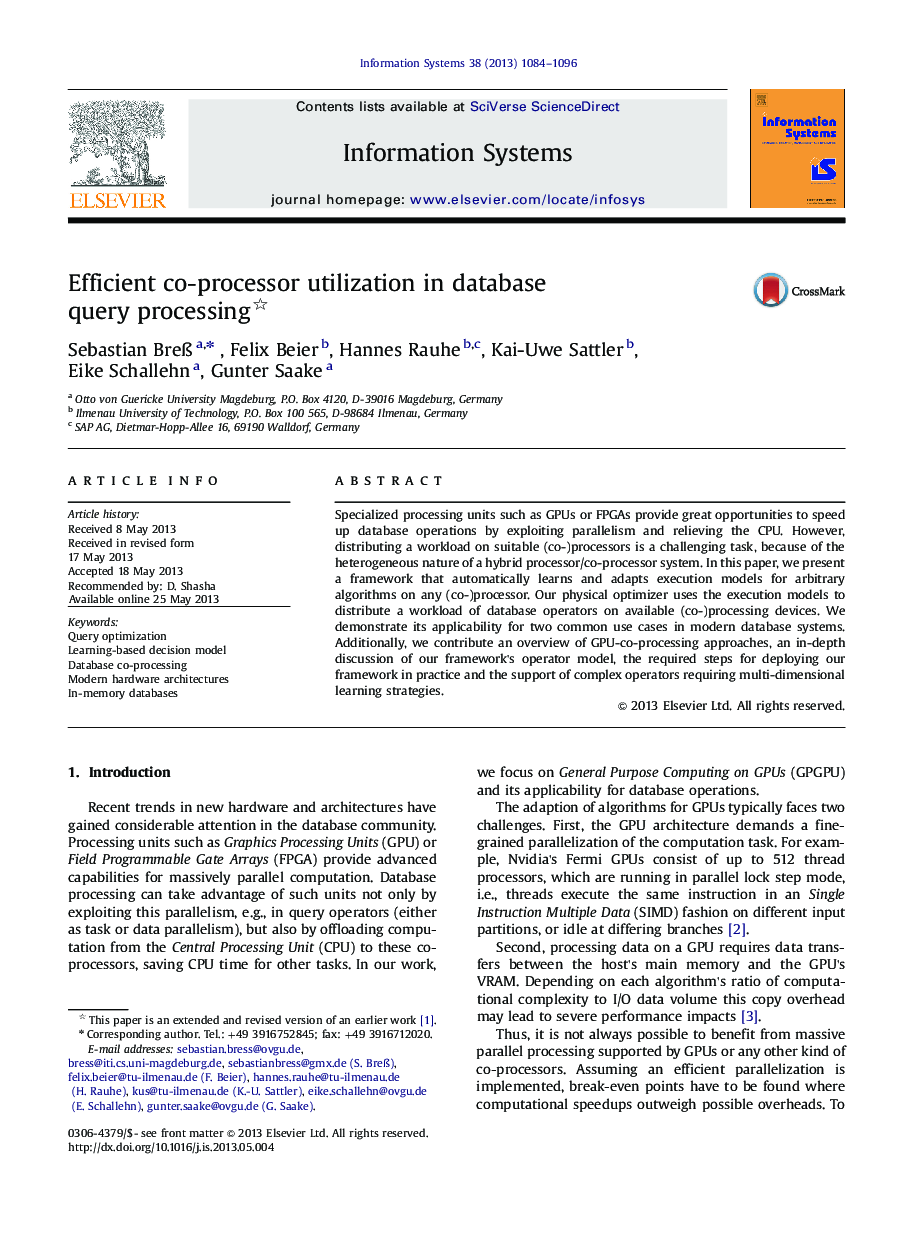| Article ID | Journal | Published Year | Pages | File Type |
|---|---|---|---|---|
| 396887 | Information Systems | 2013 | 13 Pages |
•We contribute a summary of co-processing approaches for databases.•Presentation and evaluation of our operation-based scheduling framework.•In-depth discussion of the framework's operator model and its restrictions.•Outline of required steps for deploying the framework in practice.•Model extension to support complex operators requiring multi-dimensional learning.
Specialized processing units such as GPUs or FPGAs provide great opportunities to speed up database operations by exploiting parallelism and relieving the CPU. However, distributing a workload on suitable (co-)processors is a challenging task, because of the heterogeneous nature of a hybrid processor/co-processor system. In this paper, we present a framework that automatically learns and adapts execution models for arbitrary algorithms on any (co-)processor. Our physical optimizer uses the execution models to distribute a workload of database operators on available (co-)processing devices. We demonstrate its applicability for two common use cases in modern database systems. Additionally, we contribute an overview of GPU-co-processing approaches, an in-depth discussion of our framework's operator model, the required steps for deploying our framework in practice and the support of complex operators requiring multi-dimensional learning strategies.
